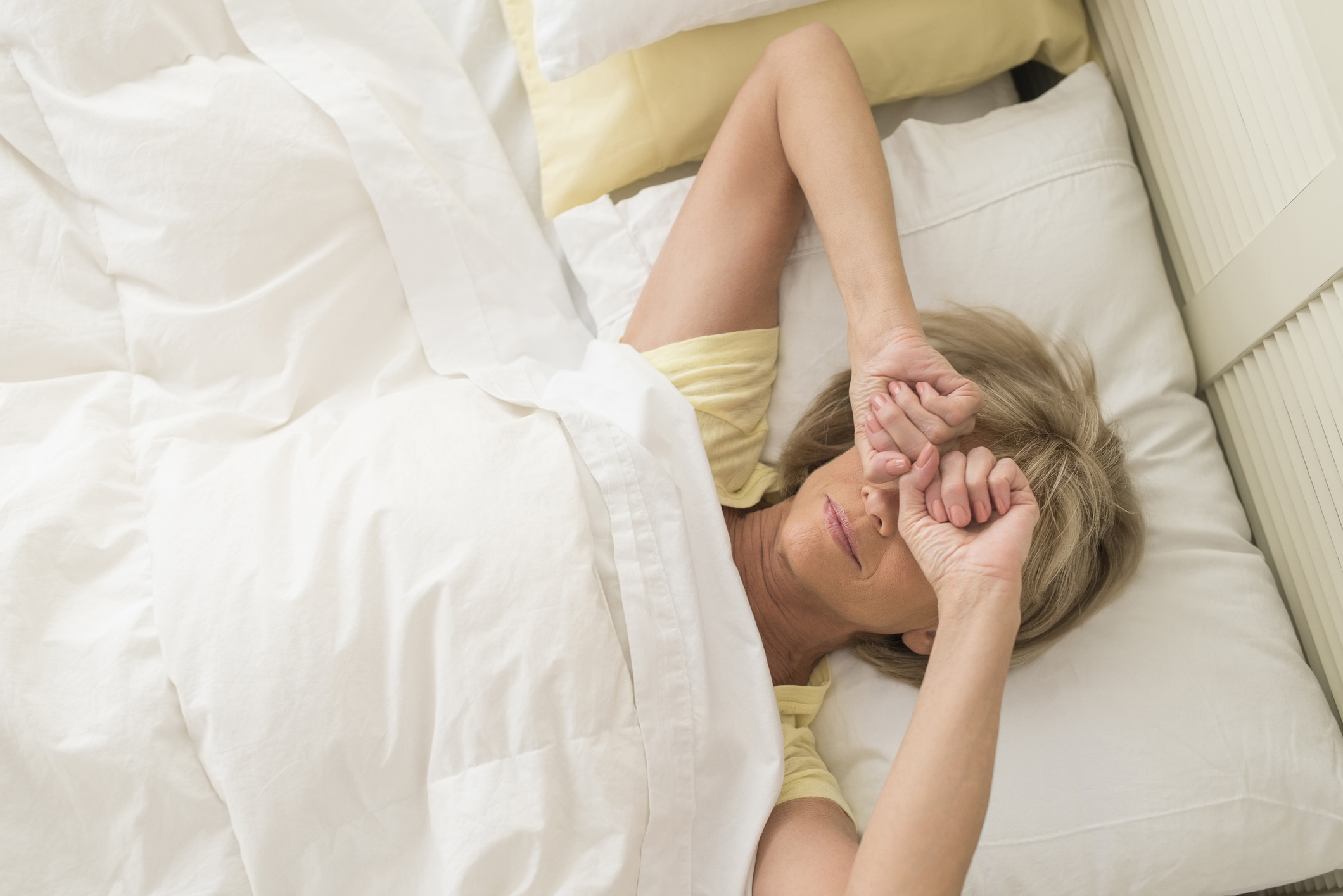Get Easy Health Digest™ in your inbox and don’t miss a thing when you subscribe today. Plus, get the free bonus report, Mother Nature’s Tips, Tricks and Remedies for Cholesterol, Blood Pressure & Blood Sugar as my way of saying welcome to the community!
Sleep apnea’s dementia double threat for women

If you wake up in the morning still exhausted after a full night’s sleep or suffer from morning headaches, daytime sleepiness or snoring, you could be living with sleep apnea.
It’s a sleep issue that affects close to 30 million Americans and carries serious risks, including obesity, diabetes, anxiety, depression and even heart disease.
That’s not even counting the research that poor sleep nearly doubles dementia risk.
Study after study has shown that processes that deep clean the brain occur during sleep. Sleep disruptions hinder these processes and may allow plaques to spread throughout your brain.
And if you’re a woman, the brain dangers of sleep apnea are even greater…
Females face a higher dementia risk at every age
Michigan Medicine researchers uncovered an alarming link between sleep apnea and dementia while examining cognitive screening data from more than 18,500 adults.
They found that all adults 50 and older with known obstructive sleep apnea (OSA) or its symptoms have a higher chance of developing symptoms of or receiving a diagnosis of dementia in the coming years.
But for women, the risk was more pronounced…
They saw that at every age level, women with known or suspected OSA were more likely than men to be diagnosed with dementia.
In fact, the rate of dementia diagnoses decreased among men while growing in numbers for women as they aged.
Considering that about two-thirds of those currently living with dementia are women, these results are not surprising. They only add to a growing list of reasons women are particularly affected, including…
The menopause link to sleep apnea
“Estrogen starts to decline as women transition to menopause, which can impact their brains,” reminds study co-author Galit Levi Dunietz, Ph.D., M.P.H.
“During that time, they are more prone to memory, sleep and mood changes that may lead to cognitive decline. Sleep apnea increases significantly post-menopause yet remains underdiagnosed.”
The researchers point out that OSA heightens the risk of both heart disease and insomnia, which have powerfully adverse effects on cognitive function.
Of course, OSA also deprives the brain of normal oxygen levels. Combine that with menopause, and you get a sleep apnea/menopause double threat for women, shortchanging the brain of oxygen and sleep.
See, estrogen is more than a female hormone. It affects factors that regulate vascular wall elasticity, mainly the production of nitric oxide (NO). NO is a compound that helps blood vessels dilate so more oxygen-rich blood can flow through your body — including to the brain and the heart.
Better sleep for a better brain
Experts estimate that 90% of women living with sleep apnea are undiagnosed.
This makes paying attention to sleep apnea symptoms vital for your brain health. Factors to look for include:
- Waking up frequently during the night (often with shortness of breath)
- Loud snoring
- A dry mouth or sore throat in the morning
- Feeling sleepy or irritable
- Having a difficult time concentrating
- Insomnia
- Episodes where you stop breathing during sleep
- Heartburn
If you have any of these signs of OSA, talk to your doctor about whether you need a continuous positive airway pressure (CPAP) machine. A CPAP is designed to keep your airways open while you sleep by blowing compressed air into them.
Dentists can also help by recognizing signs of sleep apnea in the mouth. Along with a patient’s medical history and other screening tools, dentists may be able to spot up to 80 percent of patients at risk for sleep disorders, including sleep apnea. They can also recommend oral appliances that can help.
Editor’s note: Did you know that when you take your body from acid to alkaline you can boost your energy, lose weight, soothe digestion, avoid illness and achieve wellness? Click here to discover The Alkaline Secret to Ultimate Vitality and revive your life today!
Sources:
Sleep apnea contributes to dementia in older adults, especially women — EurekAlert!
Sleep apnea — Mayo Clinic
Sleep Apnea Statistics for 2024 — Sleep Advisor
Better sleep provides better odds against mind-stealing plaques — Easy Health Options














